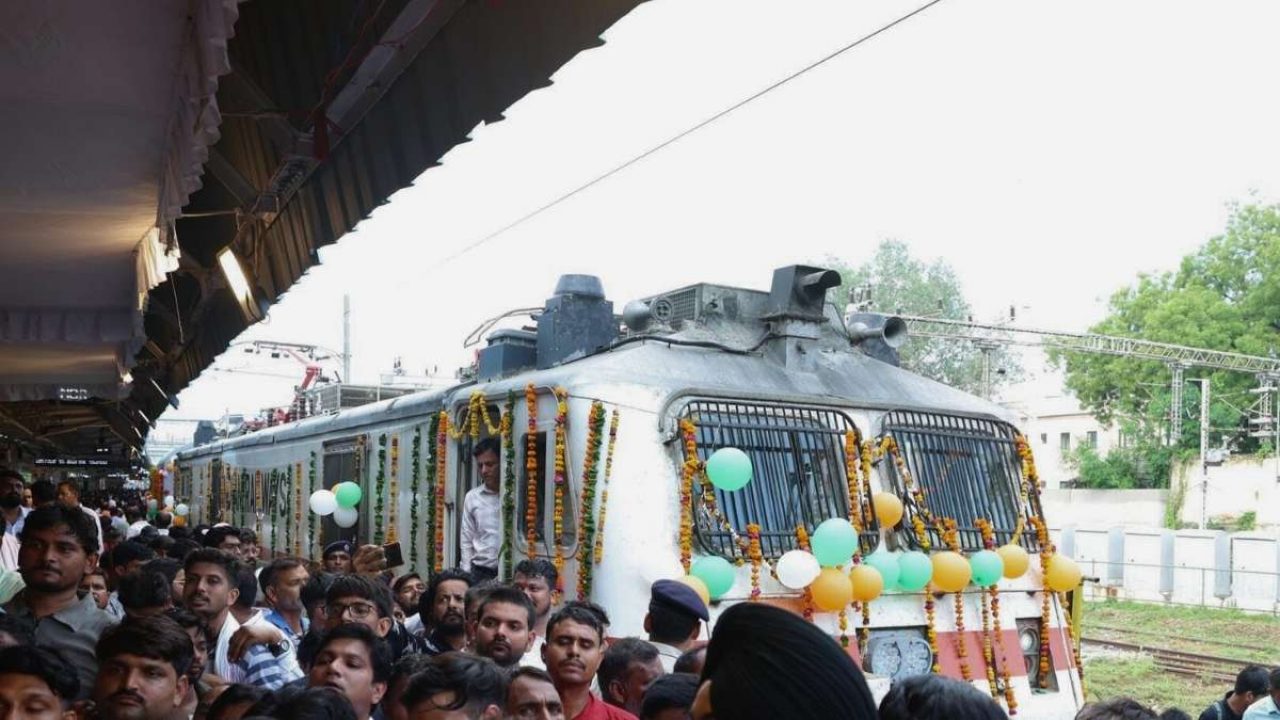Gwalior has been connected directly to Bengaluru with the launch of the Gwalior–SMVT Bengaluru Weekly Express (Train 01086), a 22‑coach service covering 2,073 km in approximately 40 hours, bringing and sustained travel options for central India’s commuters and long‑distance passengers. Railway Minister flagged off the service virtually; it departs every Friday at 3 PM from Gwalior and arrives in Bengaluru at 7:35 AM on Sunday.
The return trip departs Bengaluru at 3:50 PM on Sunday, concluding in Gwalior at 10:25 AM on Tuesday. This new service directly links Madhya Pradesh and Karnataka, catering to over 4 million people in regions including Shivpuri, Guna, and Ashoknagar. It traverses five states—Madhya Pradesh, Maharashtra, Telangana, Andhra Pradesh, and Karnataka—stopping at key nodes like Bhopal, Nagpur, Kazipet, and Kurnool City. The train comprises sleeper, AC Economy, AC 2‑tier, AC 3‑tier, and general class coaches, ensuring both affordability and comfort for students, working professionals, and families.
Regional leaders have hailed the service as a major enabler: students heading to Bengaluru’s IT and education hub now enjoy a direct link, while professionals and families benefit from more predictable and economical travel. This initiative aligns with broader railway sector goals, including 100% electrification in Madhya Pradesh and expansion of network capacity—24,000 crore in projects were approved last year alone. Covering over 2,000 km in ~40 hours at an average speed of ~51 km/h, the express reduces previous journey times by several hours. Labour-intensive cross‑country routes such as this now rival alternative options with direct access and stable quality.
The weekly schedule provides a reliable travel window, while the blend of coach types supports socio‑economic inclusivity—crucial in India’s push for gender-neutral, equitable transit infrastructure. The service not only opens opportunities for education and livelihood mobility but contributes to environmental sustainability. Long-distance rail travel emits significantly less CO₂ per passenger‑km than air or road, supporting India’s low-carbon transport objectives. Industry analysts regard the Gwalior–Bengaluru train as a benchmark for integrated, sustainable connectivity that balances passenger needs with climate-conscious transport.
Success of this weekly link may justify future frequency increases. It also encourages complementary investments—such as feeder bus services, station modernisation in Madhya Pradesh, and digital ticketing improvements—to ensure seamless last‑mile connectivity. Operational data from inaugural runs (ridership, punctuality, coach occupancy) will shape decisions on scaling service frequency and enhancing amenities. India’s railway expansion reflects a strategic pivot toward inclusive connectivity, green mobility, and regional integration. The Gwalior–Bengaluru Express is more than a train—it’s a lifeline connecting students, professionals and families across a rapidly evolving transport ecosystem.
Also Read :Andhra Pradesh Leads 3D‑Printed Rail Innovation


